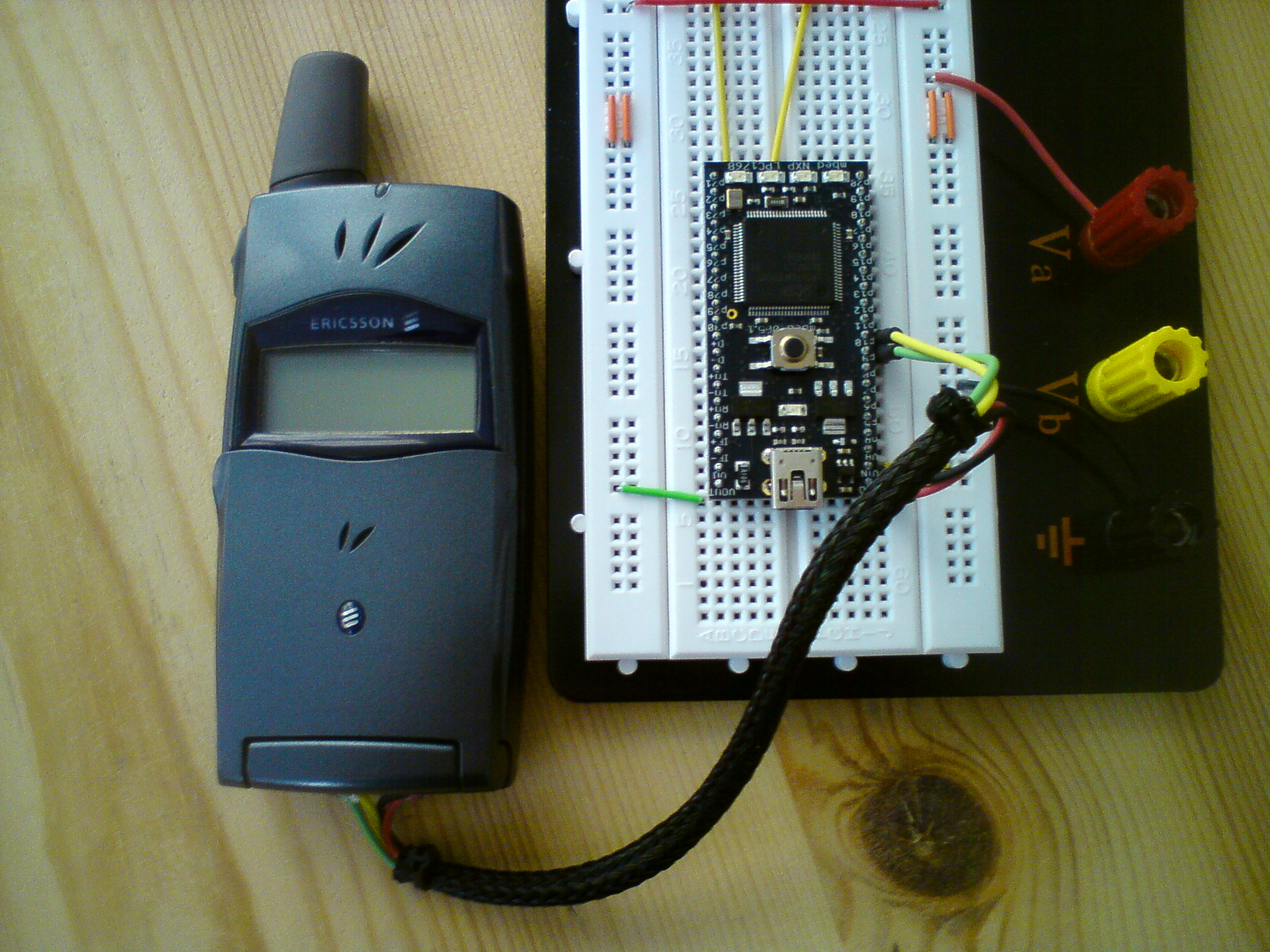SMS Controlled relay
I've finally soldered my Ericsson T29s on to wires, for connecting the mbed!
Now i'll try out the commands for sending, reading and deleting SMS, using the "Serial pass-through" example.
Next is:
1: Reading SMS, converting PDU to ASCII, for my eyes to read.
2: Controlling one or more relays, according to the SMS you send.
3: At last, making it read a DS18B20 Temperature sensor, as this is gonna be a heat-controlling device.

Any suggestions about the project is most welcome!
15. Jan. 2010:
I've deleted the polish code. Here's my own so far (with help from Igor):
/*
Author: Christian Lerche
Date: 15-01-2010
MCU: LPC1768
Notes: SMS controlled relay
*/
#include "mbed.h"
DigitalOut led(LED1);
Serial pc(USBTX, USBRX); // tx, rx of USB
Serial device(p9, p10); // tx, rx of RS232 pins
unsigned char buf[50];
unsigned int i;
void rec() { // Here's my serial interrupt routine.
buf[i]=device.getc(); // Put the character received into the buffer, at place "i"
i++; // Increment "i" to make ready for next interrupt
} // interrupt is done.
int main() { // Main structure.
wait(1); // Wait 1 sec, to make sure phone is ready!
device.printf("AT+CPMS=\"ME\",\"ME\",\"ME\"\r"); // Thanks to Igor for helping me out with quotes
wait(3); // Wait 3 sec
device.attach(&rec); // Attach the "Rec" interrupt to the serial, so we receive every character.
device.printf("AT+CMGR=3\r"); // Read the incoming message
wait(3); // Wait 3 sec to make sure we got it all from the cellphone.
if (buf[30]=='O' && buf[31]=='7') { // Again, Igor opened my mind here.
led=1; // if character is correct, turn on LED1
}
device.attach(0); // Detach the interrupt function here, until reset has occured.
device.printf("AT+CMGD=3\r"); // Send command to delete the third message in memory
for ( i=0; i<50; i++) { // Put the character received into the computer.
pc.putc(buf[i]); // ^^
}
for ( i=0; i<50; i++) { // Delete whats in the buffer (making it ready for a loop, for reset to be unnessesary
buf[i]=0; // ^^
}
wait(3); // wait command, to make ready for loop
}
By now, it reads the message, but I have to write som code, for reading the last bytes of my buf-array.
I see that I need more buffer. I will try the Serialbuffered.
Instead of serialbuffered, I used the serial.attach function. Cannot test code right now, I'm at work.
Now it should read the characters from the phone to the buffer, and then to the computer, hooked with HyperTerminal.
I hope it works.
4 comments
You need to log in to post a comment


You can use \ to escape quotes:
device.printf("AT+CPMS=\"ME\",\"ME\",\"ME\"\r");
You can also use characters instead of hex numbers:
if (buf[30]=='O' && buf[31]=='7')
led=1;